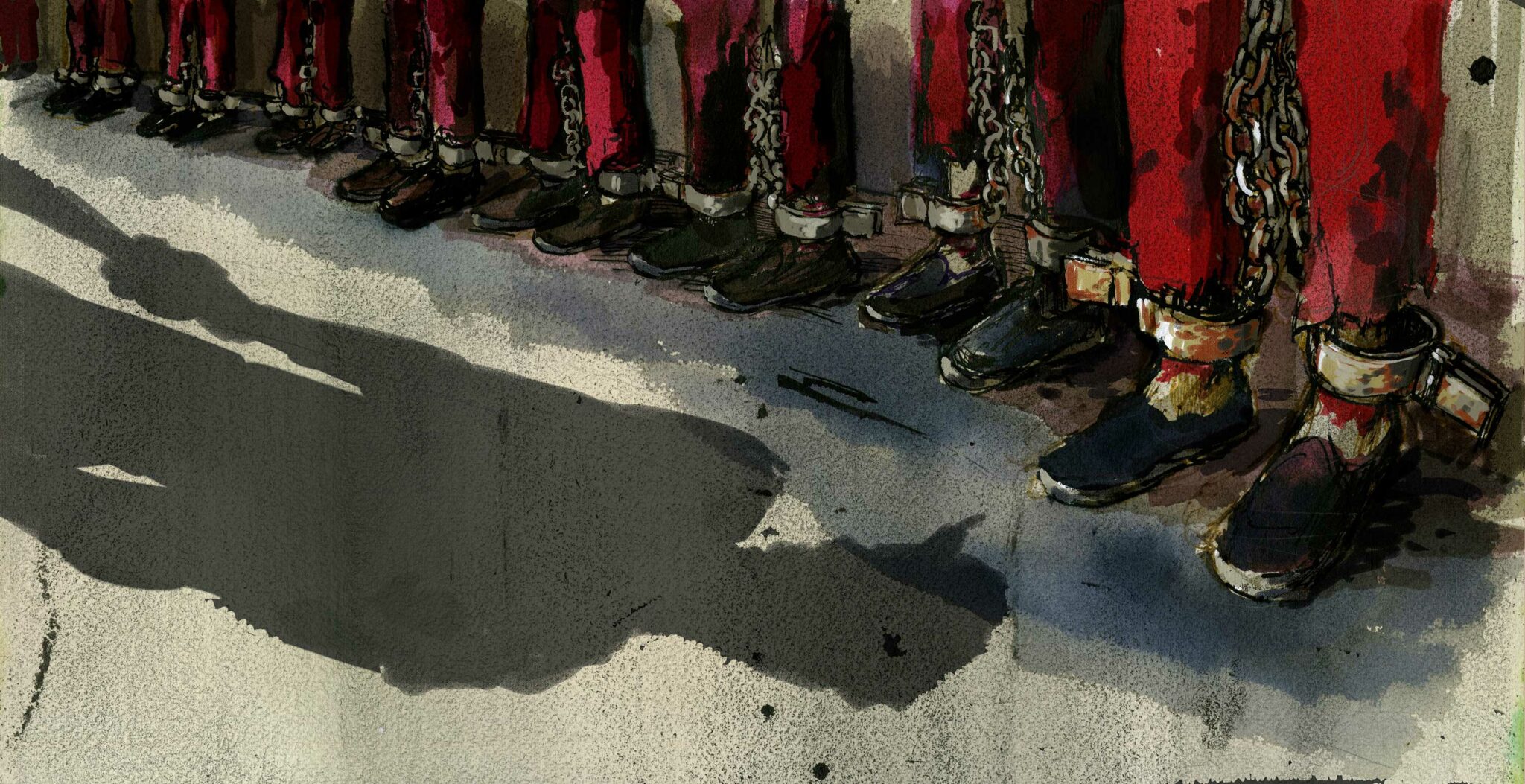In-person surveillance by local government officials
Local government officials in Xinjiang are responsible for gathering a huge amount of personal information about families from ethnic minority groups. A large portion of this information is gathered through invasive in-person interviews that occur in government offices and in people’s homes.
Aiman told Amnesty that local government officials classified households into three categories: “targeted” (usually those that had family members in the camps), “trusted” (normally government officials), and “ordinary” (everyone else). “Targeted” households were subjected to heightened in-person monitoring and electronic surveillance. [[[Amnesty International interviews.]]]
Aiman also told Amnesty how government cadres used to visit people’s homes and gather information:
I had to gather information on [several dozen families in my area]… We had to gather information on many things, on their relatives abroad, about whether they had given their children Islamic names… I don’t know how all the information was used… [We didn’t gather all the information at once]… We would get an order… for example, to go and get a passport… In 2016 we had to gather everyone’s passports… Or to find out if anyone [from the household] had been travelling to Kazakhstan… Or who prays… [In 2016 and 2017] we just asked them about praying… They didn’t know how it would be used at the beginning. [[[Amnesty International interviews.]]]
Mehmet, who also worked for the government, told Amnesty how he was responsible for gathering detailed information about families in the town he worked in:
We visited houses with the auxiliary police… we asked people if they had visited other countries, whether they had WhatsApp or other forbidden apps on their phone… [The assistant police] brought a device to check if people’s phones had any religious content on them or any Kazakh songs… or anything else forbidden… They brought a portable PC and small electronic device that looked like a router… We also had special paper to take fingerprints and a ‘family visit phone’ to take photos of the household and to make voice recordings.
As he worked in a town with a significant Kazakh population, Mehmet also said he was given a list of topics specific to Kazakh culture to check for. According to him, if people were found with any forbidden materials it could be grounds to send them to the camp. [[[Amnesty International interviews.]]]
One of the most invasive aspects of in-person surveillance in Xinjiang for members of ethnic minority groups is the practice of government “homestays”. Since 2014, the government has assigned cadres to live in the homes of ethnic minority residents and monitor their activities. The programme was expanded in 2017 and has reportedly included more than 1 million cadres who spend a few days a month living in ethnic minority households. Referred to as “relatives”, the predominantly Han Chinese cadres are tasked with monitoring and reporting any suspicious behaviour – such as religious practice or political views – and with carrying out political indoctrination. [[[Darren Byler, Foreign Policy, “China’s Nightmare Homestay: In Xinjiang, unwanted Chinese guests monito Uighur homes 24/7”, 26 October 2018 →; Human Rights Watch, “China: Visiting Officials Occupy Homes in Muslim Region,” 13 May 2018 →; →; →; Steven Jiang, CNN, “Chinese Uyghur forced to welcome Communist Party into their homes,” 14 May 2018 →; Adrian Zenz, Journal of Political Risk, Break Their Roots: Evidence for China’s Separation Campaign in Xinjiang, July 2019 →]]] According to the government, the programme is said to “promote communication and interaction among different ethnic groups in Xinjiang”. [[[Ji Yuqiao, Global Times, “1.1 million civil servants in Xinjiang pair up with ethnic minority residents to improve unity,” 7 November 2018 →]]]
According to Mehmet, cadres were required to stay with families they were responsible for – their “relatives” – five days a month. He said, other government officials would periodically check on the cadres in the middle of the night to make sure that they were actually staying at the house. [[[Amnesty International interviews.]]] Other people also mentioned that the officials staying at in their homes were also being monitored to make sure that they were present. [[[Amnesty International interviews.]]] According to Aiman, all “targeted” households were required to have a government cadre stay overnight in their house three times a week. [[[Amnesty International interviews.]]] Numerous former camp detainees Amnesty interviewed said that they were required to host government cadres in their houses several nights a week or a month after they were released from detention. [[[Amnesty International interviews.]]] Former detainees also reported that, while they were in the camp, their family members were required to have government minders stay with them. [[[Amnesty International interviews.]]] Some former detainees reported that cadres checked in on them during the day but did not stay overnight. [[[Amnesty International interviews.]]]
The cadres took pictures of them and their family members, monitored their behaviour, and tried to teach them “correct” ideology. [[[Amnesty International interviews.]]] Minders also checked homework from the language and ideology classes members of ethnic minorities were forced to attend. [[[Amnesty International interviews.]]] Gauhar told Amnesty that after she was released from a camp, minders would come and inspect her house every day to make sure she was home, and they would check her homework from the night school. “If you passed the homework test they leave, or they would stay and help you do the homework,” she said. [[[Amnesty International interviews.]]]
Batima told Amnesty International that when her father was sent to a camp, she and her mother were forced to move back to their home village and have a government minder stay with them. She described what the minder did while staying with the family:
She ate with us. Listened to what we were saying. Told us about politics. About our ‘crimes’. For example, [she said:] ‘Do not go abroad. Do not contact the outside world. Be thankful for the government. Confess that your father committed crimes.’… She stayed overnight… She stayed in the same room as me… She took photos of us. And she told us to attend classes. [[[Amnesty International interviews.]]]
Similar cadre homestays have been widely reported by journalists and other human rights organizations. [[[Darren Byler, Foreign Policy, “China’s Nightmare Homestay: In Xinjiang, unwanted Chinese guests monito Uighur homes 24/7”, 26 October 2018 →; Human Rights Watch, “China: Visiting Officials Occupy Homes in Muslim Region,” 13 May 2018 →; Steven Jiang, CNN, “Chinese Uyghur forced to welcome Communist Party into their homes,” 14 May 2018 →]]] Other human rights organizations have reported incidents of sexual violence occurring within the context of the programme. [[[Darren Byler, Foreign Policy, “China’s Nightmare Homestay: In Xinjiang, unwanted Chinese guests monito Uighur homes 24/7”, 26 October 2018 →; Human Rights Watch, “China: Visiting Officials Occupy Homes in Muslim Region,” 13 May 2018 →]]]



